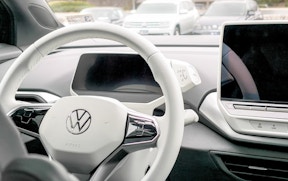When someone close to you passes away, it can be a very difficult time and there may be a lengthy period of mourning before you feel able to settle their financial affairs. However, when you’re ready, it’s worth understanding the legal steps involved.
Before you can sell the car, here’s what you need to do:
-Ensure the death has been registered, and that you have the death certificate.
-Notify key organisations such vehicle finance providers, and insurance companies of the death. For government services, if you’re in England, Wales, or Scotland, you can notify all bodies simultaneously using the Tell us Once service.
-Gather the relevant vehicle documentation and bereavement documentation.
-Work out who’s legally entitled to handle the estate:
-If they left a will, and Probate, Confirmation, or Administration hasn’t been granted yet: The will names an executor. This person is responsible for handling their estate, including selling the car.






